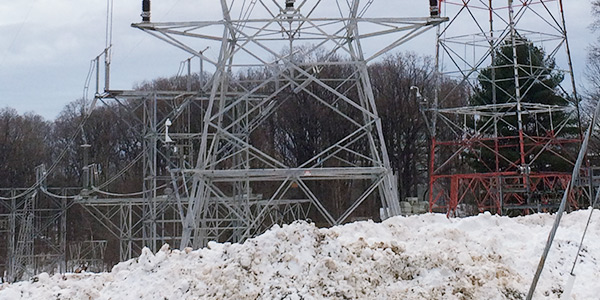NERC’s Standards Committee voted Thursday to accept the standard authorization request (SAR) presented by the drafting team for Project 2019-06 (Cold weather). It also appointed the team as the standards drafting team (SDT) for the project.
Much of the discussion of the measure at the meeting reflected the responses that it received from industry stakeholders in previous comment periods. (See Cold Weather Team Seeks More Time to Process Response.) Some committee members questioned the wisdom of moving forward with a project that has proven so controversial.
“The industry has rejected this SAR numerous times, and now it’s come to the Standards Committee, and industry has not approved it yet,” said Marty Hostler, reliability compliance manager for the Northern California Power Agency. He added that “numerous issues” remain with the SAR, including unaddressed compliance burdens and the potential impact of adding more detail to existing NERC standards that were intentionally written vaguely to give more flexibility to registered entities.
Sean Bodkin, NERC compliance policy manager for Dominion Energy, agreed that while “almost all of industry supports” some kind of cold weather preparedness requirement, several rounds of stakeholder feedback made clear that the committee shouldn’t support moving forward with the SAR in its current form.
SPP’s Matthew Harward, the chair of the drafting team, pushed back on this interpretation of the stakeholder comments. While he acknowledged that “multiple comments did not agree that a new standard was needed,” he said the team had taken this into consideration and planned to work within existing standards as much as possible. The only new standard that is likely to be needed is “a requirement for [generator owners and operators] to prepare [for] cold weather.”
The measure passed with no negative votes, though Bodkin abstained, along with Venona Greaff of Occidental Chemical, Linn Oelker of LG&E and KU, and John Babik of JEA.
IRPTF SARs Accepted
The committee voted to accept two SARs requested by the Inverter-based Resource Performance Task Force (IRPTF) and approved by the Reliability and Security Technical Committee in June. They will be posted for a 30-day informal comment period as members are solicited for a SAR drafting team. (See “IRPTF SARs Pass After Debate,” NERC RSTC Briefs: June 10, 2020.)
IRPTF’s SARs would apply to the following standards:
- FAC-001-3 (Facility interconnection requirements) and FAC-002-2 (Facility interconnection studies) — Clarify which entity is responsible for determining which facility changes count as material modifications; clarify that generator owners should notify affected entities before making a material modification; revise the term “materially modifying” to avoid confusion between Facilities Design, Connections and Maintenance (FAC) standards and FERC’s interconnection process.
- MOD-026-1 (Verification of models and data for generator excitation control system or plant volt/VAR control functions) and MOD-027-1 (Verification of models and data for turbine/governor and load control or active power/frequency control functions) — Revise or replace with a new model verification standard that accounts for inverter-based resources.
Two other SARs suggested by the IRPTF — to modify PRC-002-2 (Disturbance monitoring and reporting requirements) and VAR-002-4.1 (Generator operation for maintaining network voltage schedules) — were also approved by the RSTC but were not submitted to the Standards Committee. NERC’s Manager of Standards Development Soo Jin Kim said that the two that the committee approved were considered “higher priorities based on some issues that are occurring today with regard to compliance.”
Questions About Consistency in Nominations
The committee also approved the appointment of the chair and vice chair, along with nine members, to the SAR drafting team for Project 2020-04 (Modifications to CIP-012) and endorsed NERC’s 2021 Reliability Standards Development Plan. (See NERC Opens Comments on Standards Plan.)
None of the prospective team members for Project 2020-04 — who were not identified by name during the meeting — met with serious opposition, but some committee members did raise questions about the nominating process.
Bodkin said one candidate did not seem to have relevant expertise and lacked an endorsement from a generator or transmission owner/operator. However, he dropped the question after Kim and Howard Gugel, NERC’s vice president of engineering and standards, reminded him that ERO staff have the authority to certify a candidate as a subject matter expert — and had done so in this case.
Robert Blohm, managing director of Keen Resources, noted that none of the candidates nominated by stakeholders but not recommended for inclusion by NERC had references on file. He asked whether they had been rejected for failing to submit references — a policy that the committee has objected to before. (See “SDT Candidate Restored After Application Oversight,” NERC Standards Committee Briefs: July 22, 2020.)
In response, Kim explained that the candidates did submit references, but the template used by her team in preparing the report did not have a space for the information. Blohm suggested that the form be updated to ensure those candidates not recommended by NERC were represented with the same level of detail as those who were endorsed.





